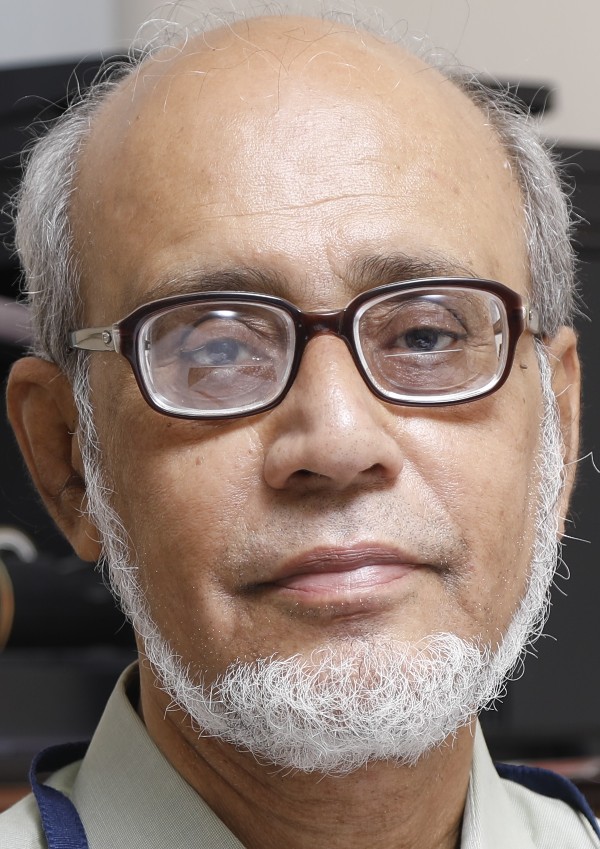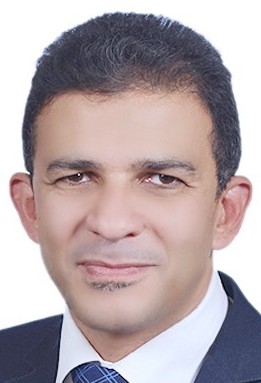The developing world needs stronger networks to monitor the spread of COVID-19 variants, a key committee recently established by UNESCO-TWAS proposes in a recent letter in the leading scientific journal Nature.
 The section dedicated to, and called, Correspondence includes 'letters to the Editor': comments on topical issues of public and political interest relating to research and to material published in Nature. In one such letter, published on 24 May, TWAS Advisory Committee on COVID-19 (TACC) proposes “embedding a network of genetic-surveillance centres in the national health system of every country.” Genomic surveillance is the process through which researchers gather nucleic acid sequences of a virus like the one causing COVID-19 and analyse each sample’s similarities and differences. By closely monitoring changes to the sequence and the location from where the virus was obtained, scientists conducting genomic surveillance can detect and track the spread of variants, or discover new ones. This information is then used to learn how new variants may affect public health and set policies by government ministries to respond to the pandemic.
The section dedicated to, and called, Correspondence includes 'letters to the Editor': comments on topical issues of public and political interest relating to research and to material published in Nature. In one such letter, published on 24 May, TWAS Advisory Committee on COVID-19 (TACC) proposes “embedding a network of genetic-surveillance centres in the national health system of every country.” Genomic surveillance is the process through which researchers gather nucleic acid sequences of a virus like the one causing COVID-19 and analyse each sample’s similarities and differences. By closely monitoring changes to the sequence and the location from where the virus was obtained, scientists conducting genomic surveillance can detect and track the spread of variants, or discover new ones. This information is then used to learn how new variants may affect public health and set policies by government ministries to respond to the pandemic.
A position statement detailing the Committee’s proposal and the arguments supporting it is available in pre-print in Open Science Forum, a non-profit technology organization providing an open-source platform that makes scientific documents publicly accessible for broad dissemination.
In its proposal, TACC points out that regional genomic surveillance networks are rare in low-income countries. Genetic sequencing, analysis and data storage would normally be undertaken by health ministries. But since these procedures are costly, several nations have turned to academic laboratories to fill this role in response to COVID-19. These laboratories then have become overwhelmed. TACC makes a case that networks of regional genomic surveillance centres in the global South would strengthen the capacity of low-income countries to conduct this work and protect vulnerable people from the pandemic.
 The authors also make the case that having such networks on-hand is important for preventing future global public health crises similar to COVID-19.
The authors also make the case that having such networks on-hand is important for preventing future global public health crises similar to COVID-19.
“We believe that there ought to be global genomic surveillance to identify and control outbreaks before they can snowball into epidemics and pandemics,” said TACC member, 2009 TWAS Award in Biology winner, and 2011 TWAS Fellow Partha P. Majumder, of the National Institute of Biomedical Genomics, India. “Perhaps not all countries can implement genomic surveillance immediately because of financial and other constraints; therefore, networking for surveillance is the best choice.”
Another TACC member, 2011 TWAS Young Affiliate Alumnus Ramy K. Aziz of the Children's Cancer Hospital in Cairo, Egypt, said the Committee was motivated to publish this proposal by the striking disparity in the quantity and quality of genomic data generated by different countries. As of May 2022, more than half of the over 11 million SARS-CoV-2 genomes made public—around 55 per cent—come from just two countries, the United States and United Kingdom, which collectively represent only 5 per cent of the world population. On the other hand, the South American continent contributed less than 2.5 per cent of deposited genomes, and, more shockingly but perhaps not surprisingly, the entire African continent barely contributed 1 per cent.
“If you compare this to the population density, it is a real problem,” added Aziz in an emailed statement. “This is a threat not only to those disadvantaged countries, but to the entire world. Statistically speaking, the next pandemic is much less likely to come from the US, UK or the European Union than from three continents that have over 80 per cent of the world population.”
About TACC
UNESCO-TWAS established TACC on 25 June 2021 with the goal of strengthening the Academy’s global influence and actions related to COVID-19. The Committee currently has 12 members1, including six TWAS Fellows, one TWAS Young Affiliate, four TWAS Young Affiliate Alumni, and the 2020 winner of TWAS-Atta-ur-Rahman Award in Chemistry. TWAS Fellow Huanming Yang, of the Chinese Academy of Sciences in Beijing, China, serves as the Committee Chair.
The Committee has multiple goals, which include providing the perspective of developing world on the pandemic’s effect, with special attention to equity in health, vaccinations and education. The Committee also provides recommendations so that the Academy can take a leading role and make substantial contributions to counter the pandemic. It also provides post-COVID-19 advice and recommendations to narrow the health gap between North and South, which the pandemic has widened.
TACC also collates data and offers advice and guidelines on how to limit and control gender inequalities expanded by the pandemic in many developing countries. It’s additionally assigned to provide a plan to enhance South-South and North-South cooperation to mitigate the lasting effects of the pandemic and prevent and manage future outbreaks.
Sean Treacy
1 Ramy K. AZIZ of Egypt, Basant GIRI of Nepal, María G. GUZMÁN of Cuba, Samir ABBÈS of Tunisia, Cláudia PINTO FIGUEIREDO of Brazil, Muntaser E. IBRAHIM of the Sudan, Eugenie KAYITESI of South Africa, Bolanle OJOKOH of Nigeria, Firdausi QADRI of Bangladesh, Vincent P.K. TITANJI of Cameroon, George F. GAO of China, and Partha P. MAJUMDER of India. Huanming YANG of China serves as the Committee's Chair, and Huan JIANG of China serves in the Committee's Secretariat.

